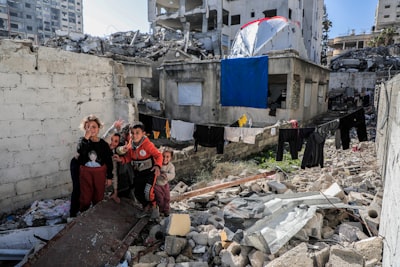Gaza Airstrikes: Humanitarian Crisis, International Outcry, and the Future of Ceasefire Talks
Introduction
The Gaza Strip is once again at the center of global attention following a devastating Israeli airstrike on a popular seafront cafe, Al-Baqa Cafeteria, which left at least 20 Palestinians dead. As news of increasing civilian casualties emerges, widespread humanitarian concerns, renewed ceasefire debates, and questions about the long-term future of the conflict are dominating online searches. This article explores the most urgent issues facing Gaza today, examines key questions people are searching for, and provides critical information on the humanitarian and geopolitical stakes.
The Latest: Airstrike on Al-Baqa Cafeteria and Civilians at Risk
The deadly explosion at a well-known Gaza beach cafe underscores the dangers faced by journalists, aid workers, and ordinary residents amidst intensified air raids. Incidents like these fuel urgent online searches around the following:
- Gaza civilian casualties 2025
- Israeli airstrike impact on Gaza infrastructure
- Safety of humanitarian workers in Gaza
- Real-time news updates from Gaza Strip
Medics report that dozens were also wounded in the seafront attack, highlighting the dire need for humanitarian relief and emergency medical attention for Gaza’s population.
Humanitarian Aid and Blockades: Can Relief Reach Gaza Civilians?
Since the escalation of fighting, Israel’s blockade of Gaza has come under renewed scrutiny. People are searching for solutions and explanations regarding:
- How humanitarian aid reaches Gaza during conflict
- The role and effectiveness of the Gaza Humanitarian Foundation (GHF)
- Blockade impact on food, water, and medical supplies
- How to help Gaza: trusted charities and ways to donate
The controversial shift to GHF, backed by the US and Israel, has not ended violence around aid distribution points. Continued airstrikes have displaced hundreds of families, adding to the growing crisis. Local testimonies paint a grim picture: repeated displacement, hunger, and lack of clean water are daily realities for many families—making humanitarian intervention urgent and complex.
Ceasefire Negotiations: Will Diplomacy Prevail Over Combat?
Search trends reveal growing interest in the prospects for a new Gaza ceasefire, reflecting:
- Latest Gaza ceasefire negotiations news
- Positions of Israel, Hamas, and international mediators
- Role of the United States in Gaza peace talks
Despite US President and global calls for renewed diplomacy, efforts to reach a ceasefire remain stalled. Many observers and former Israeli military leaders warn that protracted conflict may only result in further loss of life without achieving key objectives. The humanitarian cost weighs heavily on international appeaIs for a negotiated settlement.
The Psychological and Social Toll: Life Under Siege in Gaza
Online queries also point to a growing awareness and concern for the psychological impact on Gaza’s population:
- How civilians cope with repeated displacement
- Mental health services for children in Gaza
- Conditions in Gaza refugee camps and shelters
Personal accounts—mothers forced to flee for the seventh time, children facing starvation, and families lamenting the loss of loved ones—underscore the trauma shaping an entire generation.
International Law and War Reporting: Is the World Watching?
The killing of activists, journalists, and aid workers in Gaza has increased demands for:
- Accountability for attacks on civilians under international law
- Protection of journalists and NGOs in war zones
- Sources for reliable, on-the-ground reporting from Gaza
As the world watches, the transparency of reporting and adherence to humanitarian law are front and center in global discussions and advocacy efforts.
FAQ: Gaza Airstrikes, Aid, and Ceasefire
Q: How many civilians have been killed in Gaza since the conflict escalated?
A: According to Gaza's health ministry, over 56,000 people have died since October 2023, most of them civilians.
Q: What are the safest places for civilians in Gaza?
A: Nowhere in Gaza is truly safe; evacuation instructions by the Israel Defense Forces have often led only to further cycles of displacement.
Q: How can I help the people of Gaza?
A: Donating to internationally recognized humanitarian organizations working in Gaza is considered the most effective aid.
Q: Is there a ceasefire in the Gaza conflict right now?
A: A two-month ceasefire collapsed in March 2025; renewed talks are ongoing but have not reached agreement as of late June 2025.
Conclusion: Gaza’s Future Hinges on Humanitarian Relief and Political Will
With every new strike and cycle of displacement, Gaza’s humanitarian tragedy grows more acute. The world’s eyes are focused on whether international pressure and renewed diplomatic efforts can achieve what protracted military campaigns have not: a sustainable ceasefire and the protection of civilians. For those seeking timely updates, credible reporting, and ways to help, staying informed and engaged is both a necessity and a moral imperative.

Comments
No comments yet. Be the first to comment!